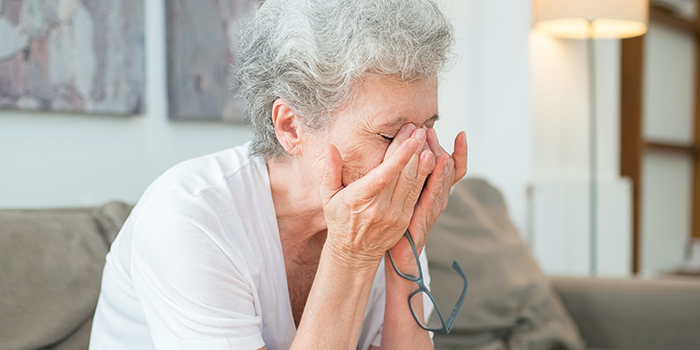Posted on March 15, 2022 by Jamie McWade, LMHC
Mental Health

One thing that is constant, is change. Few things change so rapidly the entire world is impacted at once, but in the last 2 years we have experienced a significant worldwide change impacting many aspects of life. Early in the pandemic, I remember sitting in the counseling room with someone who told me they would be unable to perform in public the following month, and my internal thought was, “That is extreme… not likely to be an issue…” And then, the next time I was able to connect with them, this in fact had been the case. Soon the whole world looked very different.
Under the best of circumstances, losing a loved one leads to a rollercoaster of emotion creating natural and normal responses such as feeling down and depressed, anger, denial, bargaining, and acceptance. While these are normal in any circumstance of grief, the pandemic has influenced our grieving process significantly. As humans our grief demonstrates a piece of our life that we have lost. Losing a loved one is like losing a part of ourselves! Sometimes we feel emotions like anger and sadness for a long time. Other times we move in and out of these states rapidly.
With the unusual circumstances surrounding loss during the pandemic, these additional layers make grief more complicated. Many have died in hospitals with no one nearby. Others have been physically separated from family for a long time and passed away isolated and alone. Family and friends might experience extra guilt, anger and pain associated with these challenging circumstances surrounding death.
The grief experience has also been impacted by lack of access to gathering and mourning as family and friends. Some might have been to a funeral with a limited number of attendees, faces obscured by masks leading to less ability to share in the celebration or condolences fully. Others might have been fearful of contracting illness, leading to complete avoidance of gatherings and possible feelings of sadness, anger, or remorse over this choice later. Some might not have felt comfortable discussing their loss with the ones closest to them. Loved ones may have expressed strong opinions about masks, social distancing, and political views making it difficult to receive love, compassion, and the care needed in a time of loss. These added layers of grief and loss can increase the need for support from friends, family, and groups in the community.
We know that God offers comfort to those who are suffering and a community of people who can come beside you. Here are some options for finding support during this difficult time in life:
There is hope, you are not alone, and spending time with others who are experiencing similar things often can bring hope and the connection you need. Matthew 5:4 says, “Blessed are those who mourn, for they shall be comforted.” We sometimes avoid the process of mourning for fear it will never end. It is true that grief never fully ends on earth, but the difficulty with day-to-day life can improve over time with purposeful, intentional processing. Mourning is an important part of the human experience and God’s comfort comes from His Word, a kind gesture from a stranger, or support from family, friends or groups of people walking on the same road.
If you live in the Quad City Area, Lutheran Family Service therapist, Jamie McWade, LMHC is hosting a Grief Support Group at no cost open to the public using material by Julie Yarbrough called, “Beyond the Broken Heart: A Journey Through Grief.” Morning and evening options are available for your convenience. See the flyer below with more information, and consider sharing it with someone you know in the Quad City area who might be interested in attending. Individual sessions with Jamie are also available, in person at the Bettendorf office or via telehealth for anyone living anywhere in Iowa. To register to attend the grief group in Quad City, or to schedule a time to meet privately with Jamie, contact her at [email protected] or 563-359-0696.
Jamie McWade, LMHC
Lutheran Family Service Therapist
2550 Middle Road, Suite 202
Bettendorf, IA 52722
You can download and print or share this flyer by clicking on the image below.
More posts about Mental Health
